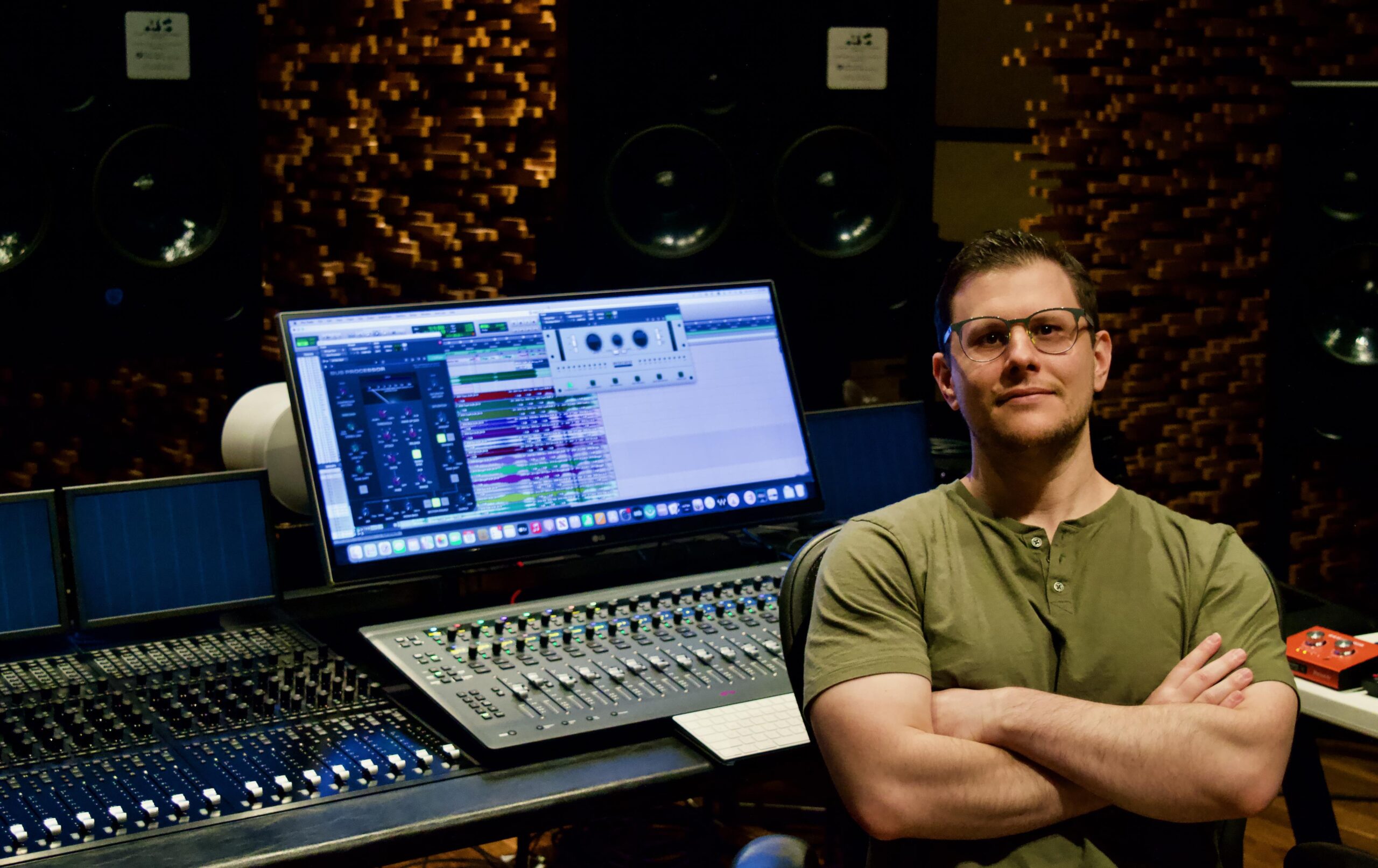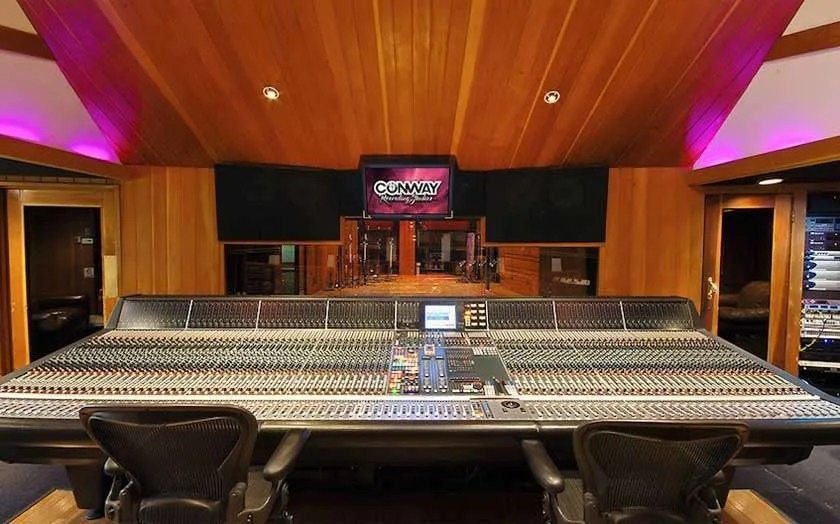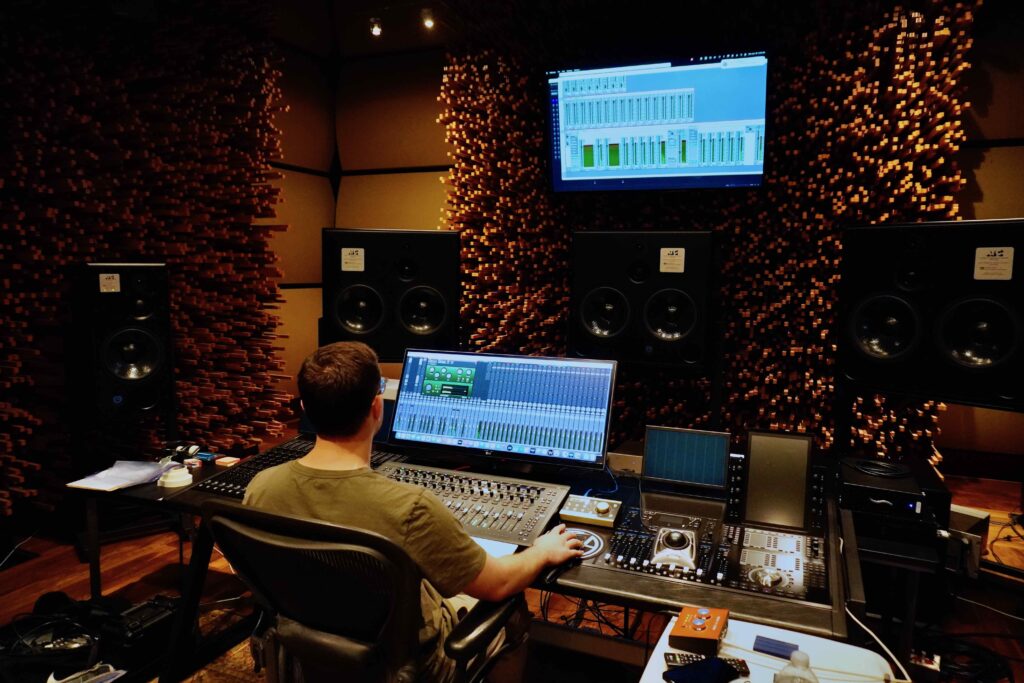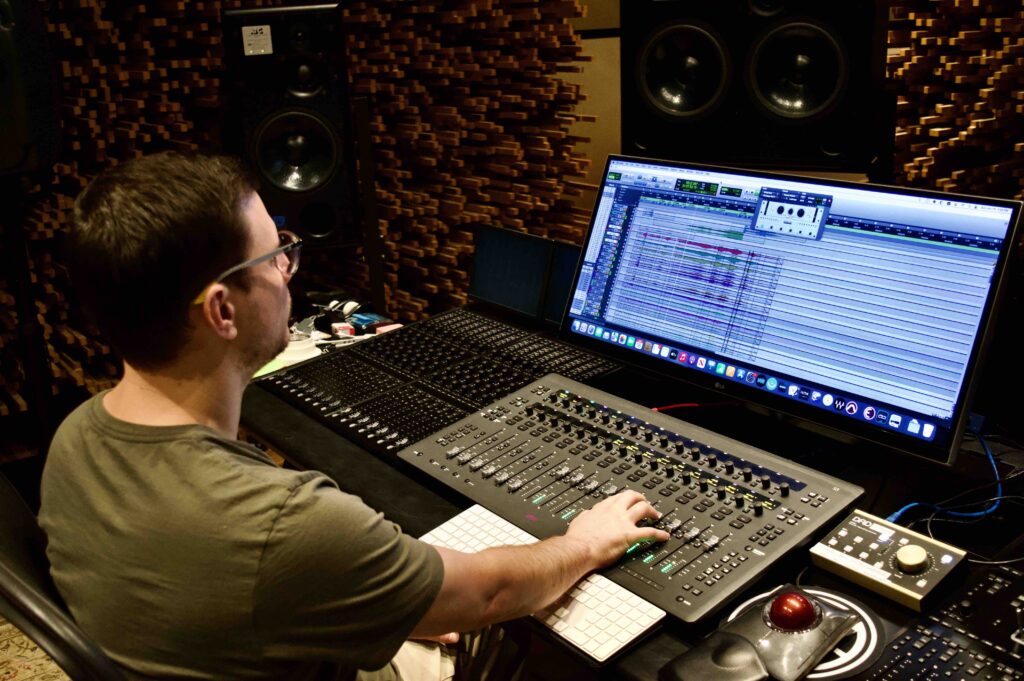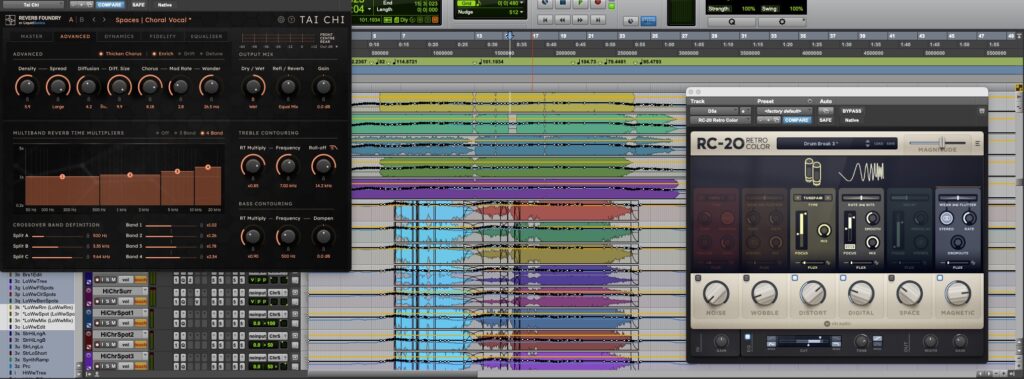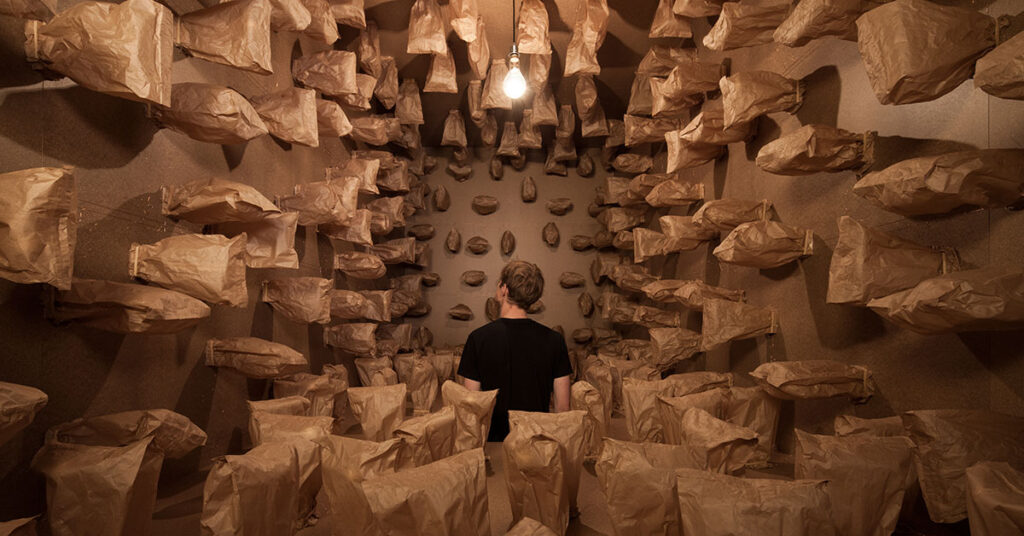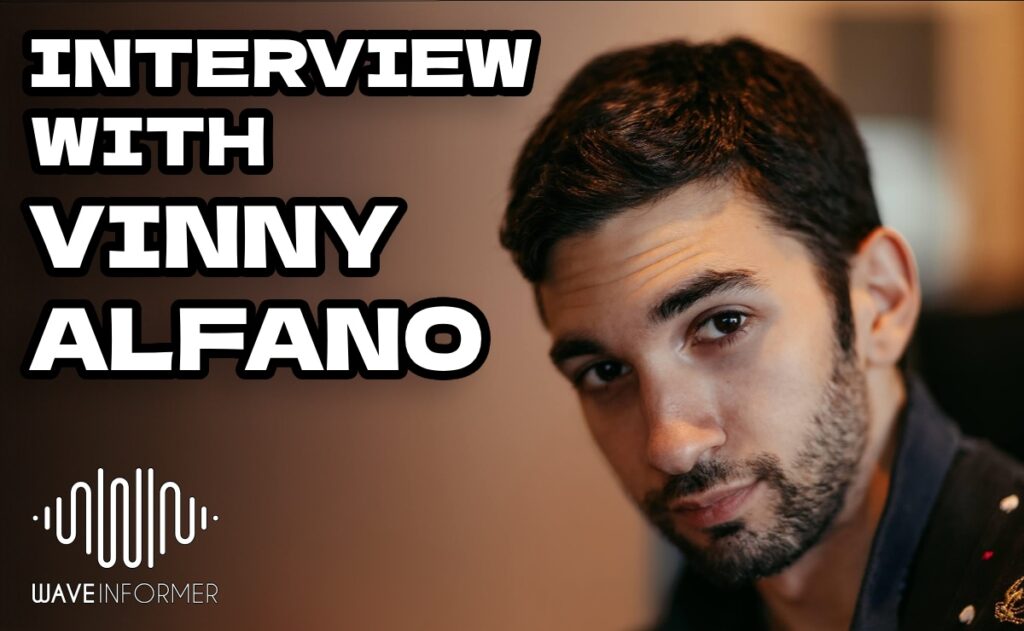I recently interviewed Score Mixer Ryan Sanchez, who has worked on more than 400 episodes of TV, including hit shows such as The Walking Dead, Outlander, Foundation, and The Lord of the Rings: The Rings of Power. Most recently, Ryan mixed the scores for Disney+’s Percy Jackson and the Olympians, and the Nickelodeon/Paramount+ animated film, Baby Shark’s Big Movie.
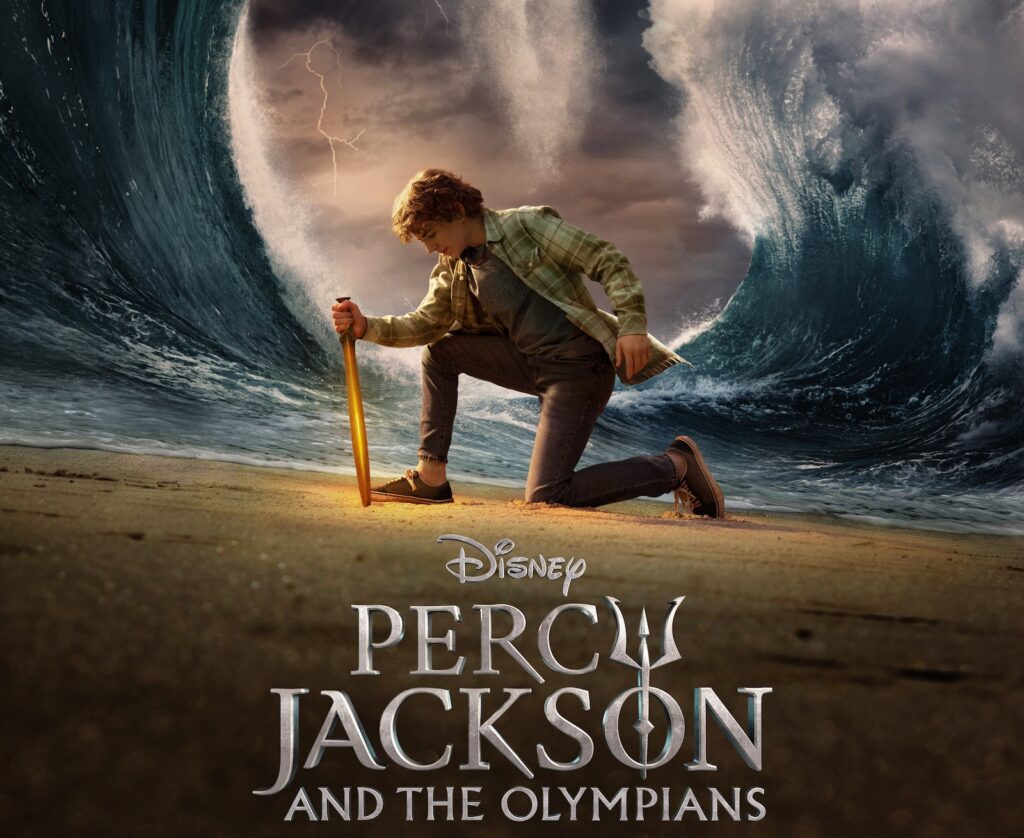
1. Can you describe how you got into the field of score mixing, and provide an overview of what the job entails?
I never truly considered it as a career until 2013, when I was in my last semester at USC’s Thornton School of Music. Up until that point, I was pursuing my dream of engineering records for Pop, Hip Hop, and R&B artists. I already had a bit of success interning at Conway Recording Studios so, I was rolling with momentum at the time. However, one of my professors, Andrew Garver, had mentioned that a score mixer by the name of Steve Kaplan was looking for an assistant. It piqued my interest and I decided to give it a shot. Steve, as well as composer Bear McCreary, were mentors to me over the years. I’ll forever be grateful for them taking a chance on me and providing me with so much invaluable experience. I worked my way up over time, learning as much as I could until I was ready to go out on my own.
To this day, I continue to mix frequently for Bear and his team at Sparks & Shadows. As a score mixer, I’m responsible for enhancing and delivering composers’ scores without losing sight of their sonic vision. It is both a technical and creative role at the very end of the music production process. I’m usually dealing with very large sessions that contain programmed sounds as well as live soloists and orchestra. Deadlines are very tight, and I must deliver large amounts of music in short windows to the dub stage where it’s flown in with dialogue and sound effects. On certain projects, I’m also asked to co-produce the score; in these instances, I’m more creatively involved beyond the normal responsibilities of a mixer.
L.A.’s Legendary Conway Recording Studios
2. What are some unexpected challenges that you face as a score mixer?
I think every project has unexpected challenges. What I’ve learned is that no project really goes the way you think it’ll go. You may have a client looking for an unfamiliar sound, which pushes you out of your comfort zone. There may be curveballs from the post production schedule or you may have hiccups during the recording process for example. It is very important to be able to adapt to any situation you’re thrown into in order to ensure the success of a project. My main concern at all times as a score mixer is representing the composer to the highest level and acting as a problem solver whenever I’m needed most.
3. Are you working in surround formats like Dolby Atmos? If so, how does that affect your work.
I do work in Dolby Atmos from time to time. I think it’s a fantastic and inspirational format so I’m always excited when I get the chance to mix in it. However, most of my projects are in 5.1, 7.1, or 4.0. Usually, the re-recording mixers request music in more traditional surround formats so that they have more flexibility and control up-mixing to Atmos with the dialogue and sound effects.
Score Mixer Ryan Sanchez working in Blackbird Studios
I’m very thankful to have worked on so many different genres of music throughout my career. I think it has added to my versatility as a score mixer and music producer by making me appreciate just about any style of music there is. I learn something new on every project I’m fortunate enough to be a part of. I’ve always been someone who loves to push the boundaries of score mixing and challenge myself with new and exciting techniques. I don’t think you can ever be too good to improve upon yourself and your craft; I am always striving to be a better mixer as well as a better person. Due to my past experiences with different genres, I’m able to quickly switch my mentality and approach to service the composer when I run into familiar scenarios.
5. How do you maintain the composers’ individual sonic vision?
A lot of it has to do with having conversations with the composer. I love to pick my client’s brain early on in order to understand their intent with the score. Thoroughly respecting and listening to the demos against the picture is also very important. I take that information and decide how to build my template while also brainstorming with recording engineers about how we should capture the live performances of the musicians we plan to record. The more I work with repeat clients, the more I understand their likes and dislikes. So, by then, I am also using my natural instincts to take the mixes where I know the composer wants them to go.
6. Can you talk about your company Echo Lane productions?
Echo Lane Productions is a company I started in 2018. Over the years, I have trained and built a team of assistant engineers in order to service our clients to the highest level. I am a strong believer in collaboration and run my business to ensure every step in the engineering process is covered by the best people in their respective fields. When a client brings me onto a project, they are not just getting me as a mixer, but also a highly skilled team of prep assistants, score editors, and recordists. It is for this reason that we are able to keep our bandwidth high without ever sacrificing the quality of our work. It’s always my top priority to make sure that no corners are ever cut.I oversee the logistics of every operation as the lead creative of my team. My company develops systems specialized to each and every client we work with because every composer’s team has their own unique way of doing things. An efficient workflow is essential to the success of every project I work on and so I make that one of my main focuses before a project begins. We pride ourselves on quality control, acting as a safety net for potential errors or mistakes starting with the prep stage before recording begins and ending with the final delivery of the score mixes.
7. Are there any tools, software or hardware that help you do your job?
Well, the most important one is probably Pro Tools. I could never work in any other DAW; or at least, I hope I never have to. Because our delivery schedules are so tight, I mix completely in the box. I would love to work on a project where we have more time to play with analog gear, but it usually becomes a road block and slows down my process during strict deadlines. Plugins are major tools in my line of work and so I’m always scoping the market for new and exciting software to increase our production value. I’m fascinated with shooting out EQs, compressors, saturators, and effect plugins to see which ones will work best in any given scenario.
Ryan operating a Pro Tools rig. Note the plugin version of the Overstayer M-A-S in use and check out our review of the hardware
8. Fortunately, we are moving further and further away from the pandemic. How did it affect the post production industry and how you do your job? Were there any things that changed that you expect to remain the same?
The pandemic had both negative and positive effects in our industry. Like the rest of the world, we were worried about our loved ones and were quickly thrown into perplexing financial situations. Work dried up right away and so it was a very concerning time not knowing when projects would return. On the other hand, it was a test for production companies to prove they could still deliver the same quality of work from home. It was the first time in my career where I began working remotely and actually considered moving out of Los Angeles. I was able to make the move to Nashville to expand my business and build a home studio the way I had always envisioned. At the time, it was a risk that I was nervous to take, but it ended up being one of the best decisions I’ve ever made. During the pandemic, I proved to my LA clients that I could mix and deliver from anywhere and so they had little concern about me moving to Nashville once the time was right.
Ryan’s DAW of choice, Pro Tools. Also pictured: RC-20 by XLN Audio and Tai Chi Reverb
9. AI tools are becoming more commonplace in many industries. Do you envision AI having any sort of implication on the post industry and film music?
I think there is a way to use AI to our advantage. The main question of concern for people is, will it completely replace us? No, I don’t think so; at least not any time soon. I think AI will become an increasingly useful tool to combine with our skills and talents in order to improve upon efficient workflow. The human element is what makes music so special to us all. I can’t envision a world where the instincts and raw emotion we bring to the creation of music is completely replaced.
10. What advice would you have for anyone interested in working in the film music industry or as a score mixer?
Start by studying and learning as much as you can. Always, always invest in yourself! Know that this industry has endless amounts of knowledge to offer and that there will always be room to grow. I highly recommend finding an internship or mentorship to learn from someone in your field of interest as early on as possible. Be a fly in the wall and a pleasure to work with while maintaining a good attitude!I’m big on riding momentum in this industry and so I’ve learned to never fight the direction the universe is taking me. I started my journey in music with my first guitar at 10 years old, but I never had my heart set on doing just one thing. All I knew was I wanted to work in music in some capacity, so I went through many different phases to figure out where I could fit in best. You’ll have many ups and downs in your pursuit of a music career and your perseverance will be tested constantly. If you let your passion for music drive you, there is nothing that can stop you. Never lose sight of the main reason you got into this industry; the immense love for music. I always say that you can’t truly fail in this industry unless you decide to give up. Everyone has a threshold of what they can handle and there is nothing wrong with trying it and one day saying it’s no longer for you. I myself, can’t imagine a world where I’m not working in music. I love it more than words can explain and every time I walk into a studio, I thank my lucky stars for being able to do it for a living.
BIO FOR SCORE MIXER RYAN SANCHEZ
Ryan Sanchez is the owner of Echo Lane Productions and is a renowned film and TV Score Mixer, Recordist, Music Editor, and Music Producer with more than 10 years of experience. Over the course of his career, Ryan has worked on more than 400 episodes of TV, including hit shows such as The Walking Dead, Outlander, Foundation, and The Lord of the Rings: The Rings of Power. Ryan is a frequent collaborator with a variety of award-winning composers, including Emmy-winning composer Bear McCreary, with whom he has worked on several film and TV projects for more than 10 years.
Ryan is known for bringing scores to life while maintaining the integrity of the composer’s sonic vision. Most recently, Ryan mixed the scores for Disney+’s Percy Jackson and the Olympians, and the Nickelodeon/Paramount+ animated film, Baby Shark’s Big Movie. Ryan also mixed the score for Director Christopher Landon’s horror comedies Freaky and We Have a Ghost; served as a score assistant on Dan Trachtenberg’s 10 Cloverfield Lane; and did additional recording and mixing work on the Sony/Playstation video game, God of War. Ryan is a proud graduate of USC’s prestigious Thornton School of Music.
PR CONTACT: Stephanie Pfingsten Lumos PR stephanie@lumos-pr.com

